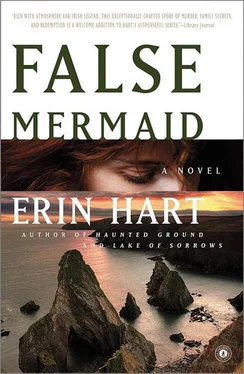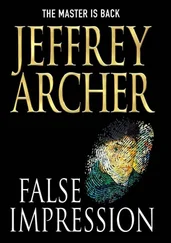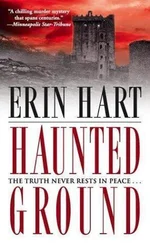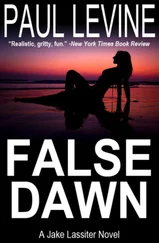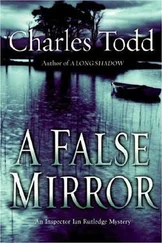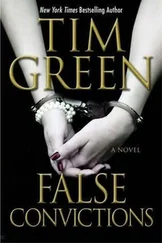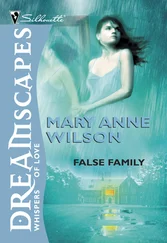She had already begun to go back over leads, looking for any loose threads that might begin an unraveling. There were a few facts she had never told anyone—not Cormac, and certainly not her parents. Forensic details that simply didn’t fit. The liquid ecstasy in Tríona’s purse was one. That glazed look in her eyes the night of the museum opening was another. What if pulling on any of these loose threads began to destroy her parents’ idealized picture of Tríona? Wouldn’t that be like killing her all over again? How willing was she to risk putting her mother and father through a second wrenching loss? She tried to summon the resolve she had felt on the plane this afternoon. No stopping this time. No going back.
A heavy fatigue had begun to settle in her limbs—apart from a nap on the plane, she hadn’t slept in almost thirty-six hours. It wasn’t too late to call her parents or Frank Cordova. What was she waiting for? Digging a small address book out of her bag, she looked up Frank’s home number, but hesitated before dialing.
He’d been the lead investigator, the person who had pulled her away from Tríona’s body in the mortuary. Two days ago, she had phoned Frank from Dublin to let him know she was coming home, and was relieved when the call went straight into his voice mail. She had left a rambling message, promising to call when she got in. He’d rung back the same day, but the conversation had been awkward. Frank Cordova had not forgiven her for running away.
For three years she’d tried hard not to think about the last time she’d seen him. They’d both been working around the clock, barely eating or sleeping, getting nowhere on the case. It wasn’t that Frank had ever taken advantage—if anything, it had been exactly the other way around. She remembered the desperate craving she had felt for a human touch, something to ease the pain. What she’d needed most that night was a respite from betrayal and brutality, a few hours not spent thinking about death. Not thinking at all. Of course, like all cravings, her need was short-lived. By the time the sun rose the next morning, she knew that her one night with Frank Cordova had been an admission of failure, a leave-taking of sorts. Frank had surely felt it too.
But whatever had possessed them that night was history now. So much had changed in the three years she’d been away, for her, and no doubt for him. She felt an involuntary twinge, imagining him with someone else—he could be married, maybe even a father by now. He’d said nothing about his personal life in their recent phone conversation, and neither had she. Better to call him at work in the morning, make it official.
That left her parents. She imagined the stony set of her father’s jaw, her mother’s gentler mien—they had always made a perfect pair of foils. But she ought to prepare for a shock upon seeing them. After three years, they would almost certainly seem older than she remembered. After pressing their number into the phone, she sat staring at the familiar string of digits, unsure what to say. She had told them she was coming home, of course, but hadn’t mentioned exactly when or for how long. The truth was that she didn’t want them meeting her at the airport, as if this were an ordinary homecoming like any other. All at once she was overtaken by a strong need to see them, to sit in the same room and breathe the same air, even if nothing in her childhood home could ever be what it had been before Tríona’s death. She snapped the phone closed and headed downstairs.
She had grown used to late midsummer sunsets in Ireland, and found it surprisingly dark outside. The wall of humidity also came as a shock after the air-conditioned apartment, but within a few minutes her body adjusted, settling into the dewy atmosphere. She had nearly forgotten the sheer physical pleasures of a summer night, with a warm breeze stirring the trees, the brightest stars and the planets visible. She cut down the hill to Grand Avenue, then crossed over and followed the curved sidewalks into Crocus Hill, the tiny pocket of a neighborhood that looked out over the river flats to the bluffs on the opposite shore. The broad streets here, even the shapes of the houses, seemed strange after three years away. Perhaps it was only the darkness. Pools of shadow seemed about to swallow up the pin oaks and lindens; the trees themselves were devoid of color, recognizable only by their silhouettes, the peculiar rustlings they made in the night air.
Nora slowed as she approached her parents’ home. She heard the music first, an Elgar cello concerto—her father’s favorite. She stopped to listen as the instrument’s deep vibrato, sonorous and sweet, spilled into the night. The broad screen porch at the side of the house was illuminated by a single reading lamp, and she could see her mother’s head bent in concentration over the crossword, a daily passion. Her father’s lanky frame was stretched on the daybed along the wall. He lay with his eyes closed, and fingers steepled over his chest as he listened to the music. Her parents had been like this always, Nora thought: two planets, each in its separate orbit. She remembered wishing once, when she was about thirteen, that her parents would shout or curse or throw things—display some feeling, anything at all. But the world around them was always calm and laid out according to scientific principles. Reason was the highest good. Nothing ever broke that peace.
When the music ended, her father sat up and leaned over to lift the LP from the turntable and slid it gently into the sleeve. He had never caught up with the world of CD recordings. Nora’s heart suddenly squeezed tight, remembering how he had played that same recording incessantly in the weeks and months after Tríona’s death. Some people reached out to others for comfort, but her father’s grief had driven him ever more inward. After five years, this nightly dose of Elgar still seemed his only consolation.
Eleanor Gavin set aside the folded newspaper and removed her glasses, rubbing her eyes as if plagued by a dull headache. Nora heard her father’s voice: “Are you all right, Eleanor?”
“I’m worried about Nora. I should have told her about Miranda. I just didn’t have the heart to do it over the phone.”
“She’ll find out soon enough.”
Nora stood in the shadows, wondering if she’d heard right. The only Miranda she knew was Marc Staunton’s younger sister. Had something happened to her?
“I’m sure she’d want to know, Tom. I should have said something. Peter said they were leaving on Saturday. Dublin’s not a large city. What if she were to run into them?”
“Have you tried the flat again?”
“No answer. Her office at Trinity will only say that she’s on break, and I can’t raise her on the cell phone.”
“Wait until she gets home, love. It’s all we can do. She’s probably on her way now.”
Nora stood in the darkness, a strange feeling settling in the pit of her stomach. What was it her parents had to tell her about Miranda Staunton?
And then she knew. Peter Hallett wasn’t returning to Saint Paul with some anonymous, clueless female he’d picked up in Seattle. He was coming back to marry Miranda Staunton, his best friend’s sister. And he was taking his new bride on a wedding trip to Ireland, where he and Tríona had spent their honeymoon. Was it some sort of deliberate taunt, a demonstration that he could do exactly as he pleased, and no one could stop him?
Nora wanted desperately to speak, but she couldn’t make a sound. It had been a mistake, coming here. The crickets’ thrumming suddenly turned unbearably loud and harsh. She turned and started back to the apartment, first walking, then running blindly, gulping air and trying to fight off the angry tears that stung her eyes. After two blocks, she slowed to a walk, suddenly so exhausted that she could hardly put one foot in front of the other.
Читать дальше
